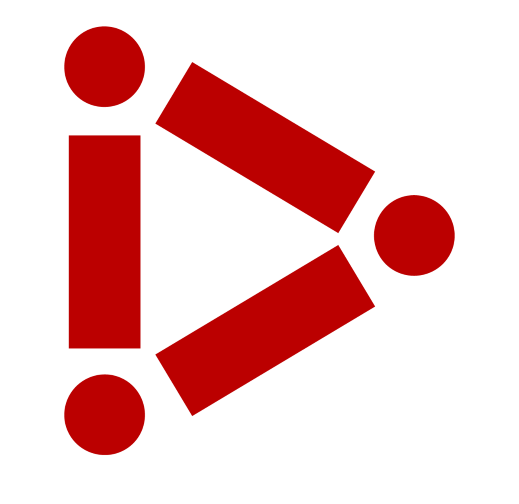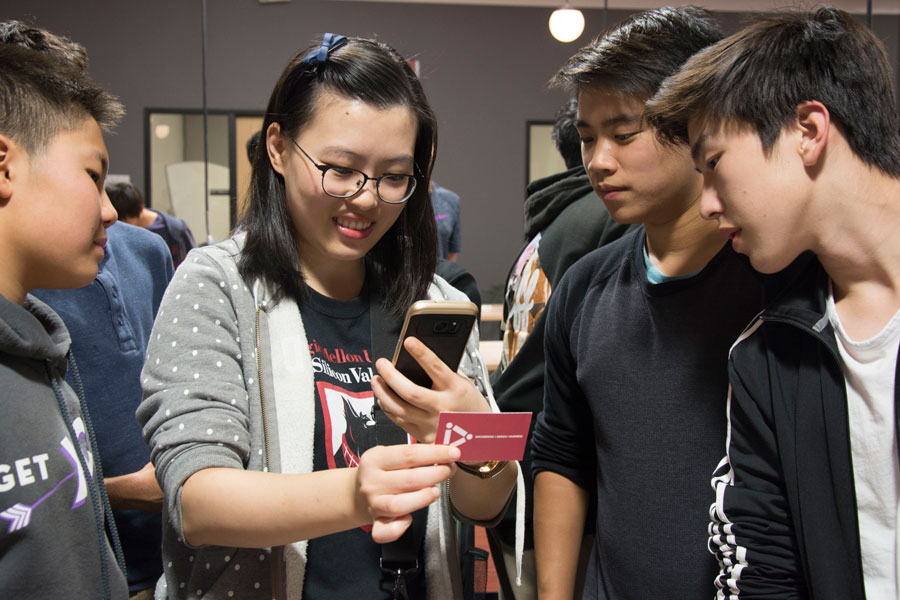
CMU Silicon Valley supports the next generation at MVHacks
Integrated Innovation students decode the path to tech careers for local teens.
By Allison Hodsdon
It wasn't a typical Saturday for 120 Bay Area high school students. For one, they started the day bright and early at 8am, when typical high schoolers relish the chance to spend a relaxing morning at home. And more importantly, these teens had signed up to try their hand at an activity usually reserved for experienced Silicon Valley professionals: a tech hackathon. Fortunately, they had the help, mentorship, and expertise of students and faculty from Carnegie Mellon University and the Integrated Innovation Institute.
On October 21st, sixteen graduate students from Carnegie Mellon University's Silicon Valley campus spent the day with these ambitious and talented teens, advising them on product ideas and code optimization. As they hacked the day away, CMU mentors were able to impart their knowledge of emerging topics, including cloud computing, mobile development, and the internet of things.
"The first time I saw these teens, I was quite amazed by their passion for computer science," explains Miaozhen Zhang (pictured above), student of the Institute's M.S. in Software Management program. "At CMU we work hard, but we are doing what we love. It was inspiring to share my passion with young people, to help them find what they love as well."
The hackathon, called MVHacks, was organized by Mountain View High School and hosted at community event space HackerDojo in Santa Clara. In addition to CMU's educational support, MVHacks organizers partnered with industry leaders including Microsoft, LinkedIn, Symantec, and LeanGap. As event sponsors, these companies supported local teens by offering scholarship, prizes, and onsite tech workshops.
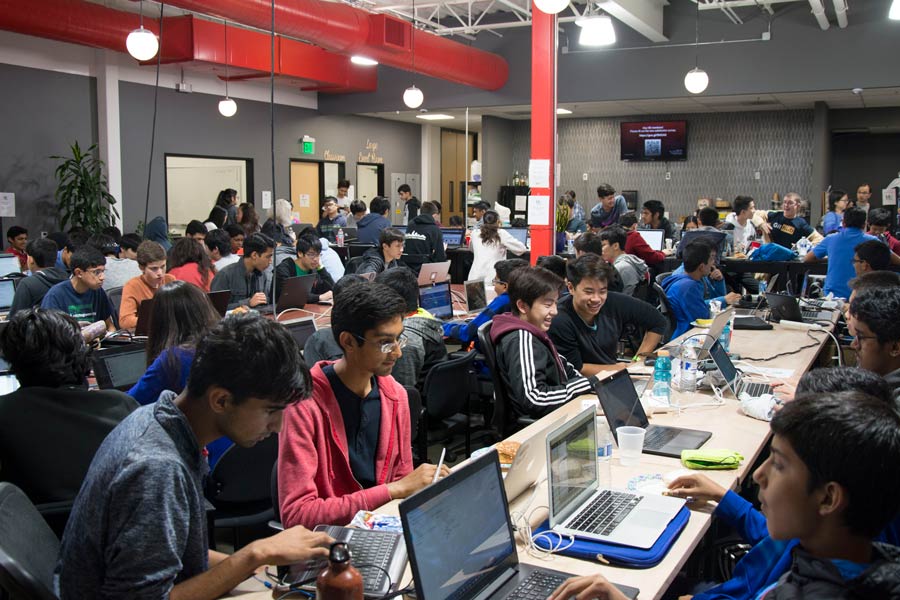
Students from 25 high schools participated in the first annual MVHacks.
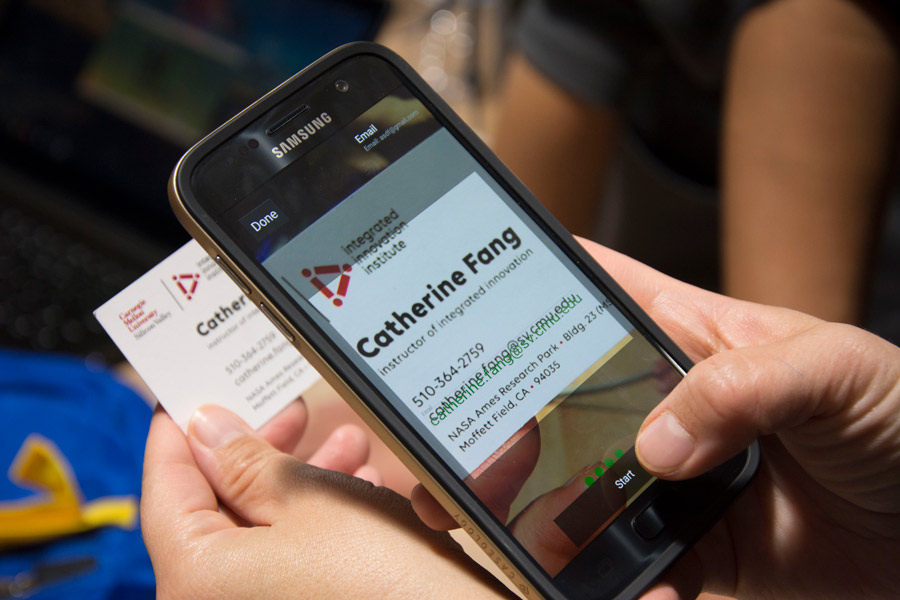
CMUSV graduate students helped teens to digitize business cards using smart phones.
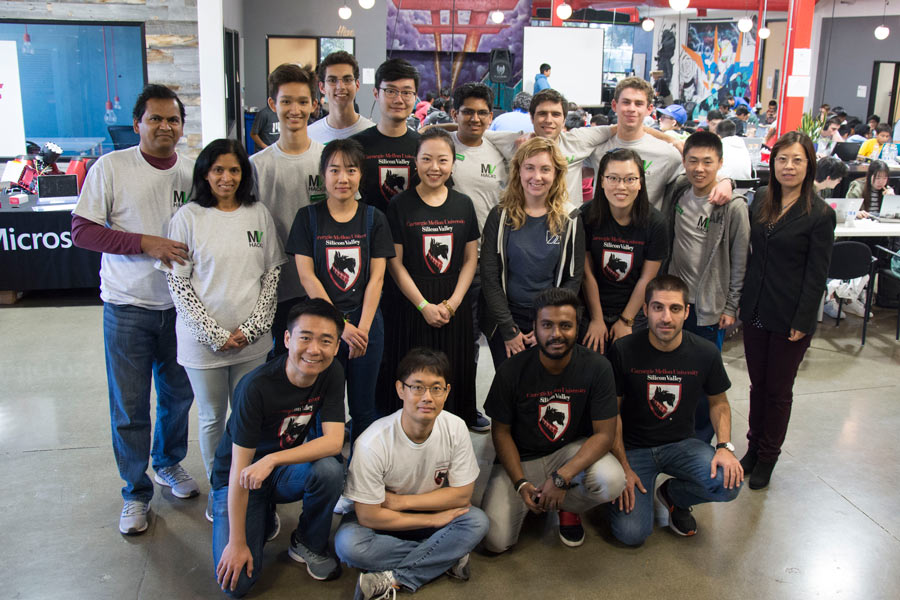
CMU mentors and event organizers for MVHacks.
With the support of CMU mentors, students developed high-tech products and prototypes exploring many areas. Team Food Racoon developed an app to detect food waste by analyzing how much food is thrown away in IoT-enabled trash cans. One group of students created BookBuddy app, a technology to scan data about a book by taking a photo of its cover. Another team created Whiteboard Web, which aimed to use virtual classroom technology to make education more accessible to remote regions. And another team developed an app to digitize your contacts' business cards by pulling additional professional highlights from LinkedIn and storing their contact information to your smart phone.
At the heart of CMU's participation is Catherine Fang, a faculty member for the Integrated Innovation Institute. Fang has been a strong advocate for supporting Bay Area teens, connecting CMU students to many other local volunteer opportunities including recent teen hackathon CU Hacks 3.
"Events like MVHacks are a good opportunity for our students to pay it forward to the community and share the expertise they acquire at Carnegie Mellon," explains Fang. "Our Silicon Valley campus is rooted in the heart of computer science industry, and our programs here are infused with both academic knowledge as well as industry best practices. Each semester, our students brainstorm product ideas and push them through prototyping and productization. This hackathon is like a mini-version of the process. We were very touched and inspired by the enthusiasm of the local high schoolers and their willingness to take on challenges."
The hackathon was the first annual event by MVHacks and proved promising in its mission to empower local students: Participants came from 25 local high schools, and about half were first-time hackers. It also marks the first of many future collaborations with CMU Silicon Valley, where faculty and staff welcome to the opportunity to extend the university's impact in the community. For many participants, Carnegie Mellon is their dream school.
"We've already heard very positive feedback from participants and their families," says Fang. "We plan to keep the momentum and make hackathon mentorship one of CMU Silicon Valley's traditions. Together, we can build a better community that is ready for the next digital transformation.”
